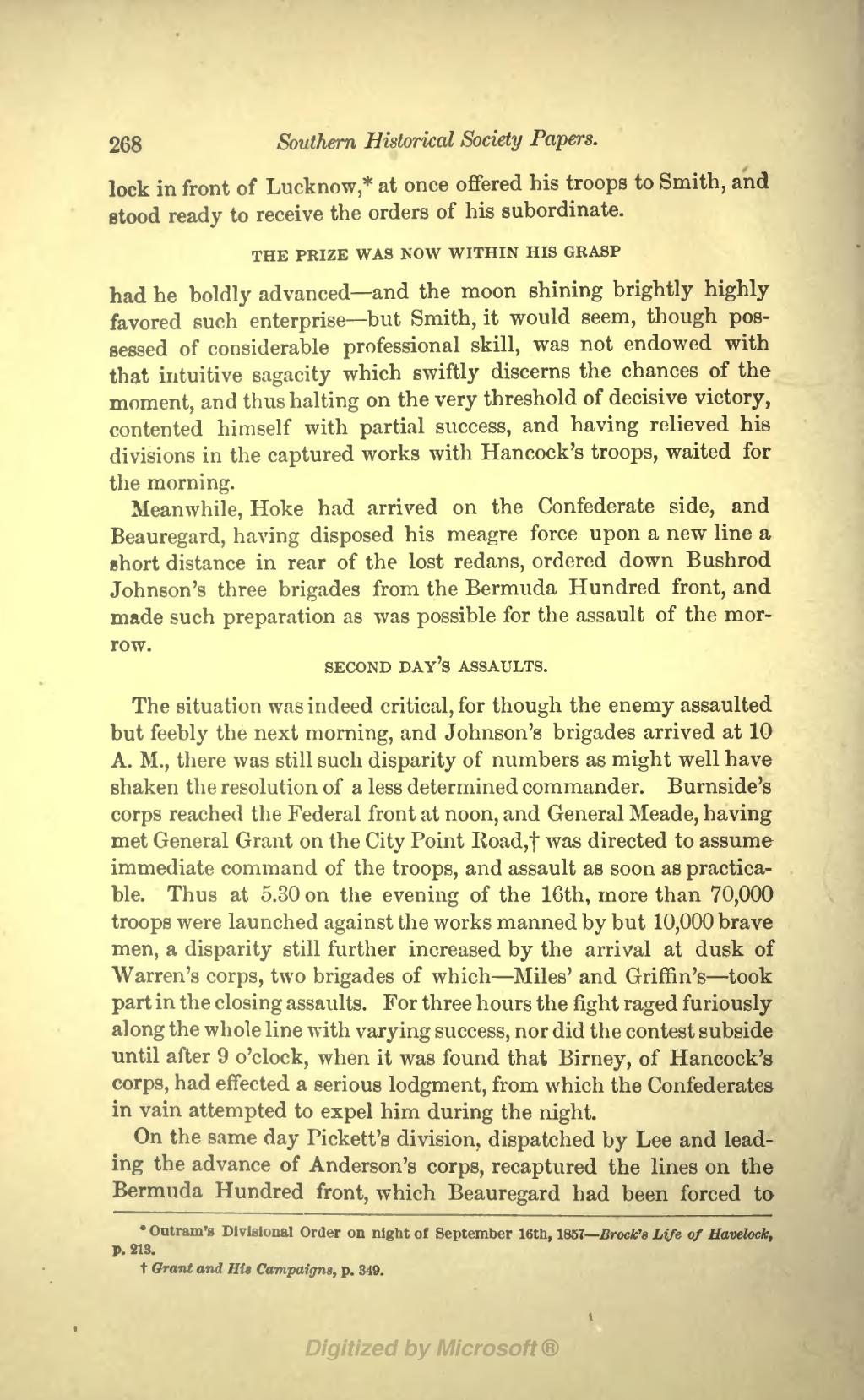lock in front of Lucknow,[1] at once offered his troops to Smith, and stood ready to receive the orders of his subordinate.
THE PRIZE WAS NOW WITHIN HIS GRASP
had he boldly advanced—and the moon shining brightly highly favored such enterprise—but Smith, it would seem, though possessed of considerable professional skill, was not endowed with that intuitive sagacity which swiftly discerns the chances of the moment, and thus halting on the very threshold of decisive victory, contented himself with partial success, and having relieved his divisions in the captured works with Hancock's troops, waited for the morning.
Meanwhile, Hoke had arrived on the Confederate side, and Beauregard, having disposed his meagre force upon a new line a short distance in rear of the lost redans, ordered down Bushrod Johnson's three brigades from the Bermuda Hundred front, and made such preparation as was possible for the assault of the morrow.
SECOND DAY'S ASSAULTS.
The situation was indeed critical, for though the enemy assaulted but feebly the next morning, and Johnson's brigades arrived at 10 A. M., there was still such disparity of numbers as might well have shaken the resolution of a less determined commander. Burnside's corps reached the Federal front at noon, and General Meade, having met General Grant on the City Point Road,[2] was directed to assume immediate command of the troops, and assault as soon as practicable. Thus at 5.30 on the evening of the 16th, more than 70,000 troops were launched against the works manned by but 10,000 brave men, a disparity still further increased by the arrival at dusk of Warren's corps, two brigades of which—Miles' and Griffin's—took part in the closing assaults. For three hours the fight raged furiously along the whole line with varying success, nor did the contest subside until after 9 o'clock, when it was found that Birney, of Hancock's corps, had effected a serious lodgment, from which the Confederates in vain attempted to expel him during the night.
On the same day Pickett's division, dispatched by Lee and leading the advance of Anderson's corps, recaptured the lines on the Bermuda Hundred front, which Beauregard had been forced to
- ↑ Outram's Divisional Order on night of September 16th, 1857—Brock's Life of Havelock, p. 213.
- ↑ Grant and His Campaigns, p. 349.
